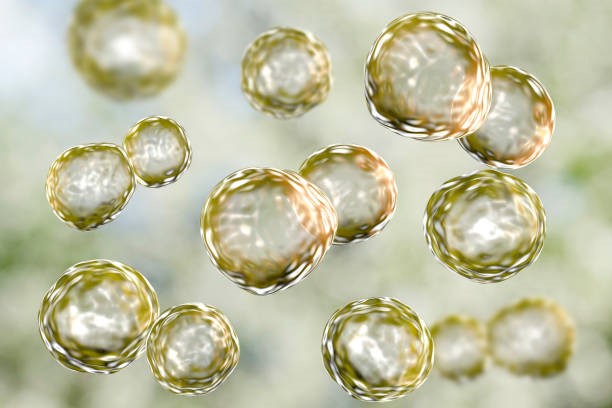Manufacturers Gain from the Bloom of Fungal Cell Cultures
Cell lines present a significant bottleneck in biomanufacturing, leading to shortages of vaccines and biologics. Conventional cell lines have limitations in terms of productivity and pose challenges such as contamination risks. To overcome these downsides, fungal-based cell culture platforms like the C1 platform developed by Dyadic International offer advantages. The C1 platform, utilizing Thermothelomyces heterothallica, a safe filamentous fungus, has the potential to increase production efficiency and is currently being tested for COVID-19 booster vaccine production in Phase I trials.

Figure .1 Manufacturers Gain from the Bloom of Fungal Cell Cultures
An intelligent strategy
Figure 1 shows Mark Emalfarb, CEO of Dyadic International, emphasizes the technological gap between the biopharmaceutical industry and industrial biotechnology. He criticizes the industry's resistance to change and suggests a shift toward rethinking cell culture models. Dyadic's C1 platform, based on a morphological mutant of T. heterothallica, addresses the viscosity challenge commonly associated with filamentous fungi. The C1 platform offers robust and versatile growth under various conditions, making it an attractive solution for biomanufacturing.
According to Mark Emalfarb, the C1 cell production platform developed by Dyadic offers several advantages over traditional systems. It demonstrates improved safety as it eliminates endotoxins and viruses commonly associated with other expression systems. The platform is faster and more productive, allowing a smaller bioreactor to achieve the same output as a larger one. For example, the C1 platform showed a significant increase in yield when producing nivolumab compared to benchmark systems. Additionally, the C1 platform can handle complex proteins and has a faster fermentation process compared to CHO cells.
First Filamentous
Dyadic's fungal platform, the C1 cell line, is being utilized in the production of a COVID-19 booster vaccine (DYAI 100) currently undergoing Phase I clinical trials in South Africa. This marks the first instance of a protein produced by filamentous fungi being administered to humans in a Phase I trial. No serious adverse events have been reported thus far, and favorable antibody responses are expected. Dyadic anticipates the potential out-licensing of the booster vaccine in the future. The company has also collaborated with Janssen and multiple research institutes to produce product candidates, antigens, and antibodies to address emerging diseases.
Dyadic's C1 platform is not limited to vaccine production alone. The platform has been utilized for various viral infections, including West Nile virus, avian flu strains (H1, H5, and H7), and other viral pathogens. Dyadic has the capability to produce the full spike protein and receptor binding domain fragments of SARS-CoV-2. Beyond vaccines, the C1 platform can also generate monoclonal antibodies and other therapeutic proteins. Mark Emalfarb emphasizes the importance of raising awareness about the advantages of the C1 platform, including its speed, cost-effectiveness, and productivity, as he believes that many decision-makers may not be aware of the potential benefits compared to existing technologies.
Unusual Origin Narrative
Mark Emalfarb founded Dyadic in 1979, initially supplying Icelandic pumice for stone-washed jeans. As enzyme washes became more cost-effective and environmentally friendly, Emalfarb shifted the company's focus to enzyme production, initially selling enzymes from major manufacturers and later producing their own.In the aftermath of the fall of the Berlin Wall, Dyadic hired Russian scientists to discover organisms suitable for enzyme production. This led to the development of the C1 technology, which allowed Dyadic to significantly reduce the cost of manufacturing enzymes.
Dyadic expanded its enzyme business to 35 countries and licensed the technology to companies like Abengoa, Shell Oil, Codexis, and BASF for various applications including biofuels and industrial enzymes. In 2015, the industrial side of the business was sold to DuPont, and Dyadic shifted its focus to utilizing the C1 platform for biopharmaceutical applications.
Immediately On
In-house product development, technology licencing, and contract manufacturing are all opportunities Dyadic views. The Phase I trial in South Africa will be used by the business to demonstrate the safety of proteins made utilising the C1 platform. That trial is boosting Dyadic's efforts to enhance cell culture productivity and, ultimately, human health while creating interest in the C1 platform. Making money is enjoyable, but eventually, as responsible people, we also need to ensure that everyone on the planet has access to health care.[1]
References:
- https://www.genengnews.com/topics/fungal-cell-cultures-bloom-with-benefits-for-manufacturers/
Cite this article:
Janani R (2023), Manufacturers Gain from the Bloom of Fungal Cell Cultures ,AnaTechmaz, pp.459

